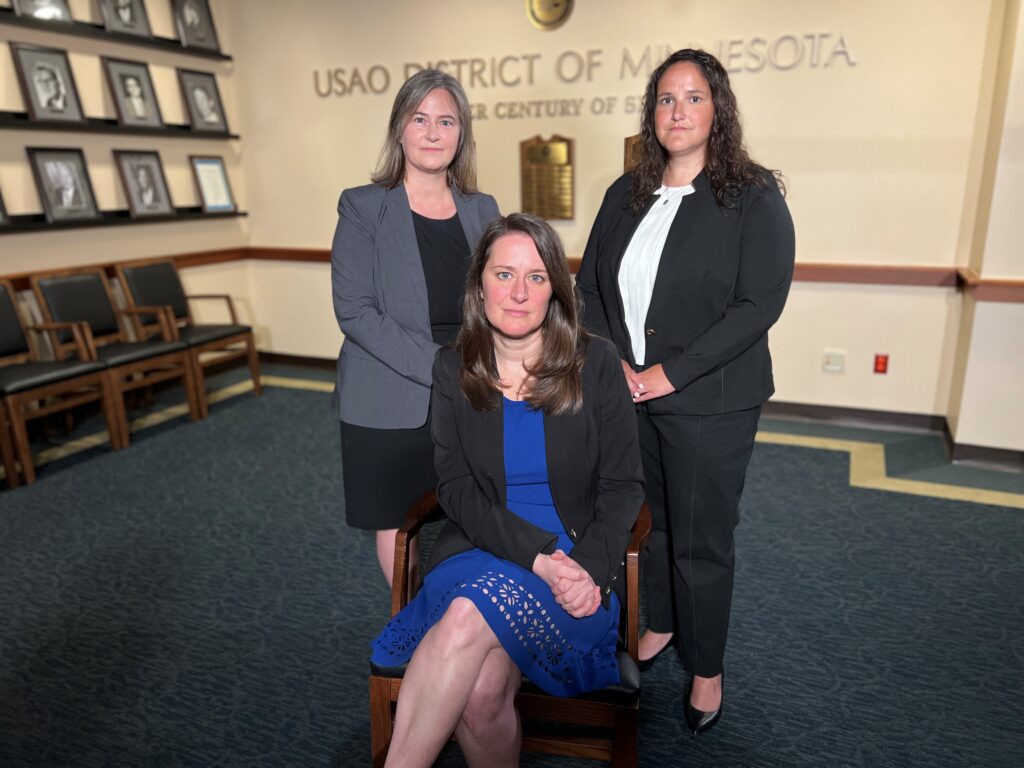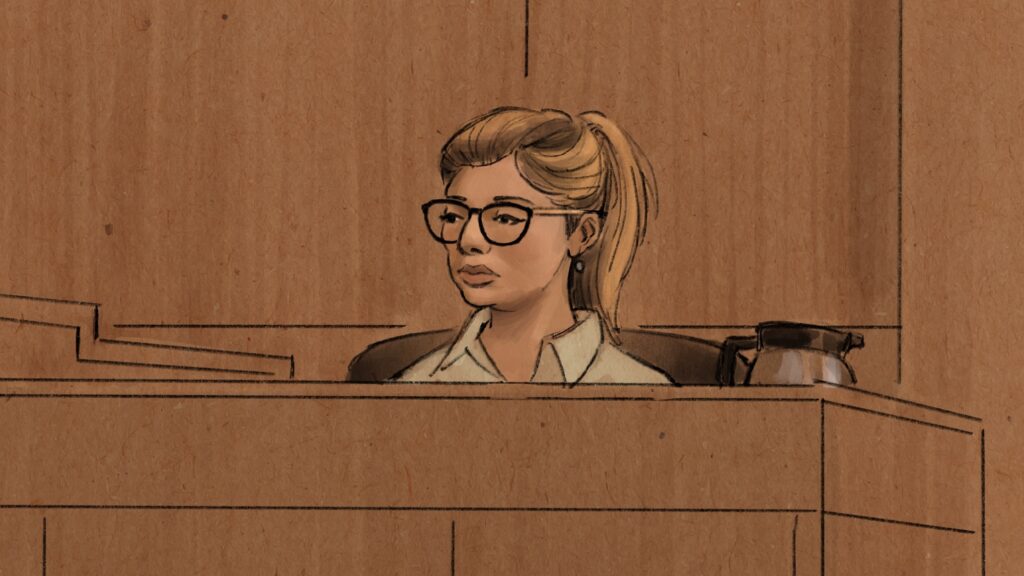Meet the women who prosecuted ‘Minnesota’s Jeffrey Epstein’
They first heard the name “Anton Lazzaro” in October 2020.
Prosecutors in the U.S. Attorney’s Office in Minneapolis learned a parent called the FBI, concerned about why her daughter was isolating herself in her bedroom. The 16-year-old also had a new iPhone and an unexplained $600 deposit in their shared bank account.
The teen revealed the cash and phone came from “Tony,” a wealthy 30-year-old man who lived in a luxury condo in downtown Minneapolis.
She would later testify in federal court that Lazzaro gave her the money after she’d had sex with him.
In a matter of weeks, investigators found four other girls. All were 15-and-16-years-old. All were paid to have sex with Lazzaro. And all would take the stand in federal court to tell a jury the lasting impact that sex trafficking will have on their lives.
“There were a couple of moments where I had to turn away from the jury because I felt myself getting emotional, and that rarely happens to me,” said Assistant U.S. Attorney Melinda Williams.
Williams, along with fellow prosecutors Laura Provinzino and Emily Polachek, built the case that rocked Minnesota politics, revealed the inner workings of modern-day sex trafficking, and sent Lazzaro to prison for 21 years.
In their first interview since wrapping up the case last week, the women acknowledged the emotional challenges of prosecuting the man later dubbed “Minnesota’s Jeffrey Epstein.”
“It was just worse than it appeared on paper, the more we dug,” Williams said.
After two weeks of testimony, the jury delivered its verdict: guilty.
“I think we knew we had it, but the victims, they needed closure,” Williams said. “It had been going on for a really long time.”

Federal prosecutors say building the case against “Minnesota’s Jeffrey Epstein” was legally and emotionally challenging.
The Evidence
Lazzaro’s arrest in 2020 rocked Republican politics in Minnesota. The campaign donor and strategist was connected — financially and socially — to some of the biggest names in the party.
His indictment led to the resignation of the party chair and the return of thousands of dollars in campaign contributions.
But as the political fallout dominated the headlines, prosecutors were quietly interviewing victims, finding witnesses and digging through a mountain of digital evidence.
Laura Provinzino said investigators obtained thousands of screenshots of social media conversations from the app Snapchat, where Lazzaro first had contact with his victims.
The young girls also gave prosecutors photos and videos they took when they were at Lazzaro’s apartment.
“When we can marry the hard forensic evidence… the things that tell the tale with the victim testimony, that’s how you build one of these cases,” Provinzino said.
But prosecutors struggled to gather evidence from Lazzaro’s devices. Investigators testified during the trial that he went to great lengths to conceal many of his communications with his co-conspirator, often using encryption software.
“These were pretty sophisticated players,” Provinzino said.
Co-conspirator to cooperator
The sex trafficking scheme, according to prosecutors, hinged on the help of an 18-year-old woman who admitted to being Lazzaro’s recruiter.
Initially indicted alongside Lazzaro, Gisela Castro Medina later testified against him after she pleaded guilty to one count each of conspiracy to commit sex trafficking of minors and aiding and abetting sex trafficking by obstruction.

In March, she told the jury that she would use social media to find girls, telling them her sugar daddy was interested in them.
The girls had to meet his specific criteria: around 16 years old and up, preferably white, with no tattoos and thin.
“He preferred what he calls ‘broken girls,'” Castro Medina said on the stand. “Sluts. Whores.”
Melinda Williams, who prepped Castro Medina and led her through the testimony at trial, said her cooperation was crucial to the case.
“Not only do we know how important her testimony was, but Lazzaro knew how important her testimony was,” she said. “He was freaking out at the idea that she would cooperate with the government.”
The prosecutors said they believe Castro Medina’s testimony was the tipping point for the jury.
“We intentionally put her on very early, because we knew if the jury believed Gisela, that was going to be it,” Williams said.
A powerful comparison
At a press conference following the guilty verdict, Williams called Lazzaro “Minnesota’s Jeffrey Epstein.”
“Such an important piece of what we’re doing right here, educating about sex trafficking, is giving people something they can latch on to,” Williams said. “So when we say he’s ‘Minnesota’s Jeffrey Epstein,’ people start to get it, and the awareness is raised.”
But they were only able to make that comparison to the jury after they received a bombshell piece of new evidence in the middle of Lazzaro’s testimony.
Charles Bittman, Lazzaro’s former business associate, shared text messages with prosecutors that showed he ordered an Uber for a group of 14-and-15-year-old girls who snuck out of a slumber party to go to Lazzaro’s condo.
In the text exchange, Lazzaro sent a blurry photo of Jeffrey Epstein with the caption, “RIP my brother.”
Prosecutors introduced the damning evidence during their cross-examination of Lazzaro.
“We knew before we had that evidence how he felt about Jeffrey Epstein,” Williams said. “We had heard it from Gisela, we’d heard it from others, so it wasn’t a surprise to us. We just needed to get it in, in a way that was admissible.”
Emily Polachek said one of the reasons this case is important to talk about openly is to break down stereotypes of sex trafficking.
“I think that it was Gisela actually when she testified, she said in her mind sex trafficking was a van, and you get thrown in it and take it to another country,” she said during the interview.
Provinzino said she hopes the high-profile case will have a deterrent effect, but also start conversations between parents and their children about what modern-day sex trafficking looks like.
“Anything we can do to help prevent this and help support victims is what we want to do,” she said.
Below is a list of resources that address how to spot human trafficking and how you can help someone you suspect is being trafficked. If you or someone you know is in immediate danger of being trafficked, call 911. You can report suspected trafficking to the Minnesota Bureau of Criminal Apprehension at 1-877-996-6222 or email bca.tips@state.mn.us